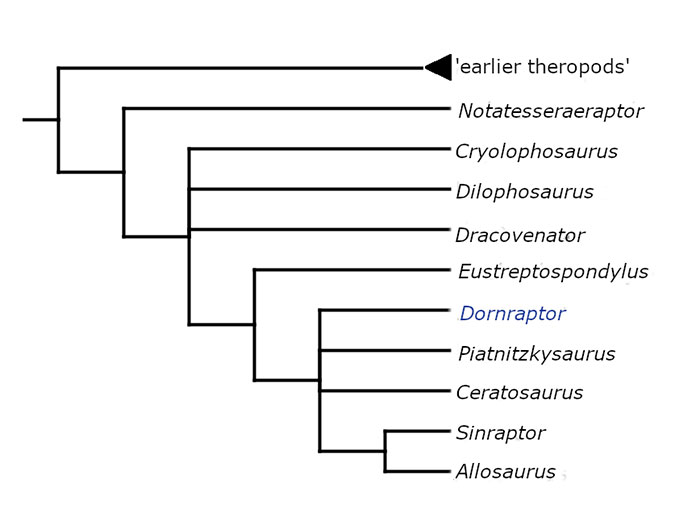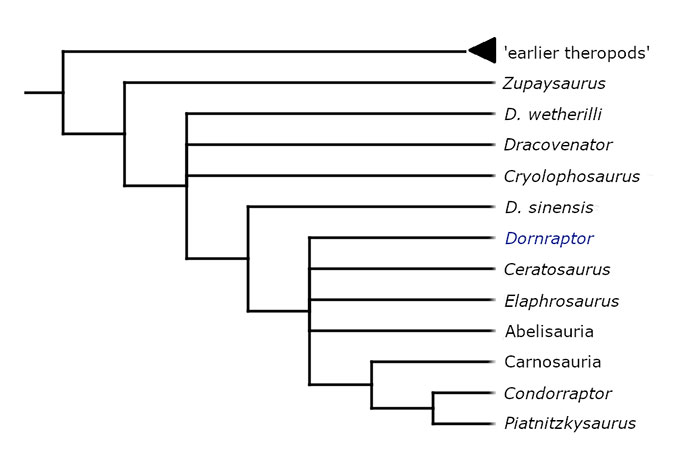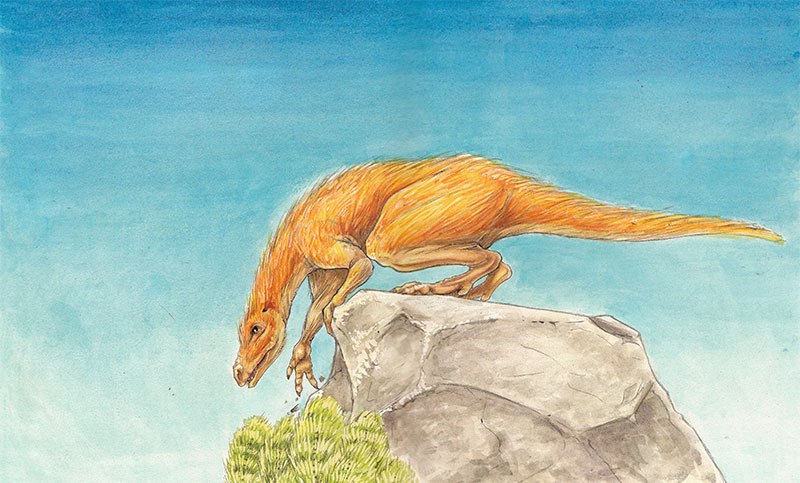FIGURE 1. Artist’s rendering of BMNH 39496 from the Early Jurassic of England (adapted from Lydekker, 1888). The specimen comprises a distal end of right femur, articulated with a proximal portion of the right tibia and fibula (now lost). (A) medial view; (B) posterior; (C) lateral view.

FIGURE 2. Artist’s rendering of GSM 109560 (adapted from Lydekker, 1888). (a) anterior view; (b) lateral view; (c) posterior view.

FIGURE 3. Holotype (BMNH 39496) and referred material (GSM 109560) of Dornraptor normani. BMNH 39496 - distal end of right femur in (A) anterior; (B) posterior; and (B) lateral views. GSM 109560 - partial femur in (d) medial; and (e) anterior views (adapted from Benson, 2010). BMNH 39496 - proximal portion of right tibia, in (f) lateral view. Abr. a.t., anterior trochanter; bulb., bulbous expansion of fibular crest; cn.c. cnemial crest; ct.c, crista tibiofibularis; f.t., fourth trochanter; lat.c., lateral condyle of distal end of femur; lat.r. I, lateral ridge I, or fibular crest; lat.r. II, second lateral ridge; sc., scarring on anterior surface.

FIGURE 4. Results of phylogenetic analyses that utilised the dataset of Baron et al. (2017a), as modified by Langer et al. (2017) and Baron et al. (2017b). Dornraptor normani is recovered nested within Averostra (blue, bold). Also included in these analyses, the only two contemporaneous theropodan taxa Sarcosaurus woodi and Dracorptor hanigani (blue).

FIGURE 5. Results of phylogenetic analyses (simplified) that utilised the dataset of Zahner and Brinkmann (2019) - Dornraptor normani again recovered within Averostra.

FIGURE 6. Results of phylogenetic analyses (simplified) that utilised the dataset of Smith et al. (2010), as modified by Novas et al. (2015), and then Baron (2024) - Dornraptor normani again recovered within Averostra.

FIGURE 7. Life reconstruction of Dornraptor normani. Credit for this artwork is owed to Megan Williams.


